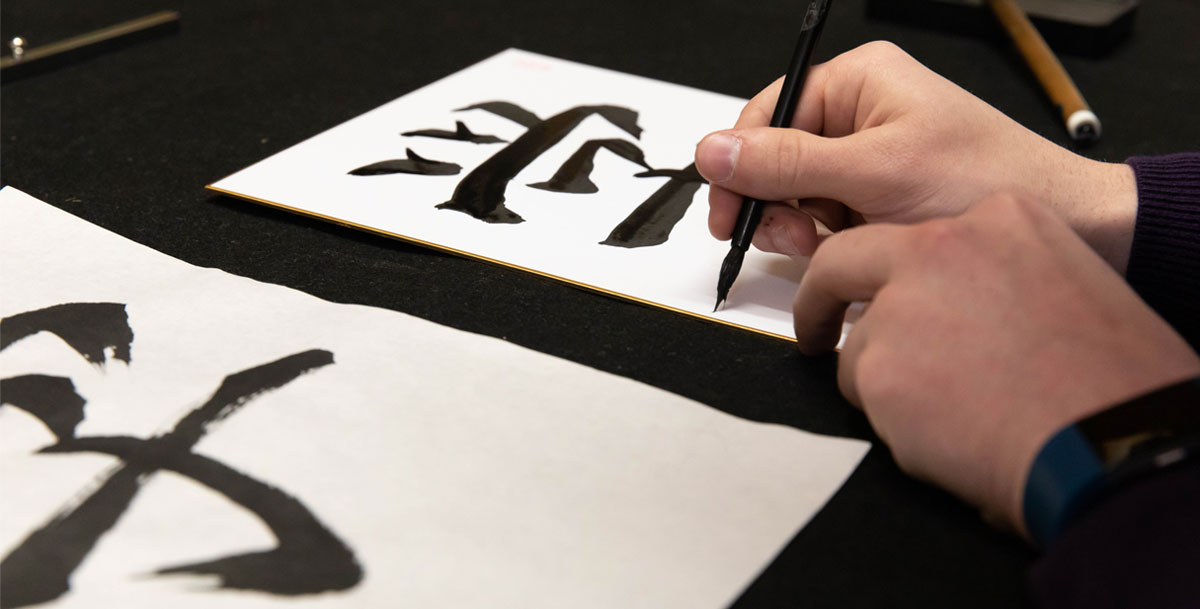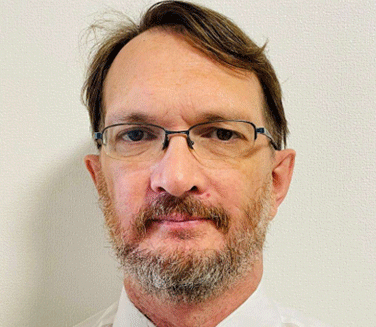日米会話学院 お役立ち情報
ビジネス英語に関するお役立ち情報をお届けいたします。
CJ Wessels
- 日本の不思議 Wonders of Japan

海外経験豊富な外国人講師から見た日本の文化や習慣の不思議
東南アジアの国での在住経験もあるというWessels先生。その中で、日本は彼の目にどのように映ったのでしょうか?
「ユニーク」という言葉を使って表現した彼の体験談をご紹介します。
When I first arrived in Japan I wasn't immediately overwhelmed by the experience. I wasn't confronted by a sea of scooters or tuk-tuks, as I was in parts of South-East Asia. There wasn't the hustle and bustle of street vendors and markets, as I encountered away from the well-trodden touristy areas of South America, the Caribbean or the Middle-East.
On the surface, Tokyo is very similar to New York or London, with the added attraction of beautiful temples and shrines and of course the ever-impressive imperial palace. Parts of old Tokyo is still visible in tucked-away corners of the great city, but my initial sense was one of settled, first-world civilization. With that came an automatic assumption that largely the same social rules and norms as found in the West, applied here. To a certain extent that is true, of course. Yes, I had heard of cultural differences between Japan and the West, but having arrived here, I couldn't help but feel that these were no longer as significant as they had once been. That they were now, in fact, merely superficial differences in mannerisms and etiquette.
Yet, over time, I have come to appreciate that Japan is more profoundly unique than any country I have ever had the good fortune to travel to or live in. This unique character is mostly hidden beneath the surface and runs deep, much like the earthquake (my first ever) that I experienced on my very first night here.
Some things did seem a bit odd at first. Like noticing a group of pedestrians, each giving the other what seemed like acres of personal space (and this was long before covid), waiting patiently for several long minutes for a light to go green before they would cross a minor road completely devoid of any cars or other traffic. I must admit I have at times broken ranks and strode across those few paces of tarmac on my own, leaving that silent group behind me. I cannot say that I have ever caught anyone casting a disapproving look in my direction. No one seemed perturbed in the least by my small act of defiance.
Certain patterns of behaviour seem almost universally followed by Japanese people, yet when someone, and this can be a foreigner or a local, doesn't follow the script, either by failing to wear a mask on a train carriage during the height of the covid pandemic or by not giving up their seat to an elderly person on a train or a bus, no-one will so much as raise an eyebrow, least of all the elderly or pregnant person concerned.
No one even seems to notice, at least on the surface.
This brings us to the concept of harmony. You've probably heard or read that group harmony is central to Japanese society. One consequence of this is that there is a very real reluctance to criticise anyone, especially directly, as this could disturb that harmony. Disapproval can be shown, but this is done in a very subtle way indeed, often going right over the head of the uninitiated Westerner.
The Japanese have an expression "Kuki wo Yomu". This translates as "read the air". You often don't have to say certain things, because they are (or should be) understood. You need to have an understanding for the feelings and thoughts of the other people in the room. This also includes an appreciation of your own social status as well as the social status of those around you. You are expected to not act in a way that may be inappropriate or cause embarrassment or offence. You should know better. Needless to say, this isn't something that one picks up overnight.
When the person you are speaking with doesn't nod affirmatively or give you a "hai", or "ah so" or "so desu ka", this can be an indication that they don't agree with you or don't like something you've said. Don't expect them to show their disapproval with a shake of the head or even a frown, particularly in a formal setting. Anything resembling a rude or aggressive response would be almost unthinkable.
I am happy to report that I've never failed to give up my seat to an elderly person or wear a mask on public transport during the covid pandemic. My behaviour has changed, perhaps only partly for the better, though. I almost cringe to think about it now, but I have asked a young man, studiously ignoring an elderly lady, to give up his priority seat to her. I'm not sure I would do that now. I have also asked another young man to put on his mask in a busy train carriage. I'd certainly be more reluctant to do that now, even though I can be a bit impulsive at times. Both these young men immediately complied, after very brief eye contact only and no word uttered in response. My behaviour ran the risk of disturbing the harmony much more than it did, however.
One thing I have stopped doing is crossing those streets when other pedestrians are patiently waiting.
While this lack of overt criticism avoids disharmony, it can be a bit perplexing to an outsider. It extends to the media, which on the surface at least, seems much less critical of the political classes than is the case in the West. Yes, the extreme polarisation in countries like the USA, which admittedly is much more diverse than Japan, is not found here, which doesn't seem like such a bad thing. However, one does have the sense that pressing social issues such as the declining birth rate and greying population, as well as the lack of women in senior corporate and political roles in a still very patriarchal society, should engender more public debate than it does.
What has helped me gain a deeper, albeit still very imperfect, understanding of the underpinnings of contemporary Japanese culture has been my wife's fondness of Kabuki. We have visited both the famed Kabuki Za in Ginza as well as the National Theatre in Hanzo Mon. The Kabuki Za was certainly an easier introduction for me than the National Theatre, since I was able to rent an electronic screen there on which everything spoken on stage is translated into English. It is cleverly synchronized with the actors' words and also gives background historical and other information. Even Japanese audience members are given headphones since the old Japanese spoken by the actors is not easily understood, even by someone like my wife, who studied old Japanese at university. While these headphones are still available to Japanese audience members at the National Theatre, the electronic screens are not, which necessitated my wife leaning over to whisper periodic updates into my ear. Plays such as Sugawara Denju Tenarai Kagami, first performed in 1746 (in which a father and mother sacrifices the life of their son - with his willing cooperation- in order to save the life of their master's son) and Kanjincho, first performed in 1840, tell ancient tales of the Heian era. The themes of loyalty and the primacy of the group over the individual are conveyed by way of powerfully moving and gripping performances. I have been surprised by how entertaining I have found the Kabuki experience.
While our daughter is raised in this exciting fusion of old and new cultural influences, I hope to continue to gain a deeper understanding of what it means to be Japanese. I hope to avoid being a "kuki yomenai" (someone who is not able to read the air) in more and more situations. As a criminal lawyer and prosecutor in my previous life, I truly appreciate the low level of crime, particularly violent crime, in Japan. I'm still amazed at how people walk into a chain restaurant or coffee shop and reserve their spot by casually leaving their bag on a table or chair before proceeding to the counter, not even glancing back once. And how you can expect to get your smart phone or wallet back if you've forgotten it on the train or bus.
I marvel at and take joy in the small, immaculately kept gardens in our neighbourhood . This painstaking attention to detail and beauty is deeply rooted in the Japanese psyche. Life is short, and precisely because of this, it has to be true and beautiful.

●CJ Wessels
南アフリカ大学卒(法学)。
弁護士資格取得後、検察官として活躍。
CELTA取得。専門を活かし英語教育に情熱を傾ける。
日米会話学院では75年以上にわたる実績をもとに、成功する研修のお手伝いをさせていただきます。
メルマガの登録はこちらから